International
Opponents at the Embassy of Argentina in Venezuela, waiting for a permit that does not arrive
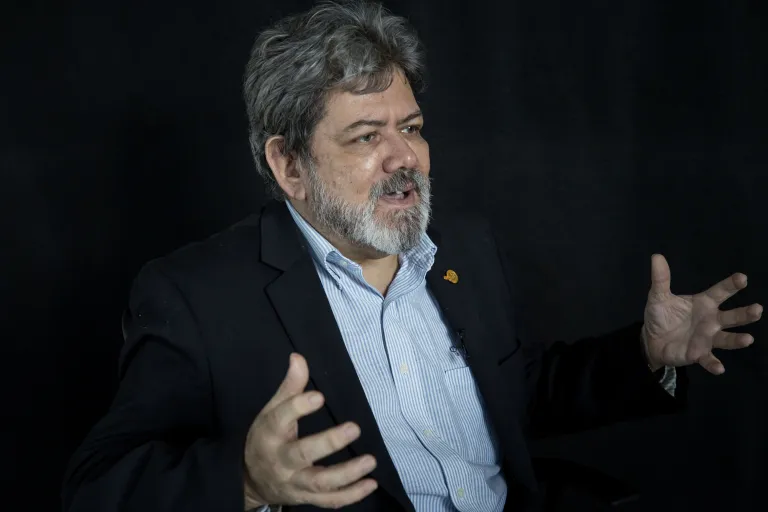
Six Venezuelan opposition members are asylum at the Embassy of Argentina in Caracas waiting for the Government of Venezuela to grant the safe-conducts to leave the country. A possibility classified as mandatory in the Convention on Diplomatic Asylum (1954), but of “limited” application in practice, experts say.
Although the convention says that “the asylum State can request the departure of the asylum seeker for foreign territory,” and expressly indicates that “the State is obliged to give immediately (…) the corresponding safe-conduct.” “Except in case of force majeure” is added, without specifying more, which leaves the door open to different criteria.
For Simón Gómez, professor of International Law at the Andrés Bello Catholic University, “force majeure” is a concept “on which there is a relative general acceptance of its meaning.” It refers to “circumstances resulting from a natural tragedy” that prevent “conferring the safe conduct.”
But the president of the College of Internationalists of Venezuela, Juan Francisco Contreras, told EFE that it must be located in 1954, the year in which the convention was created, when many countries “had military and dictatorial regimes.” So “a kind of window was always left to be able to justify some kind of denial.”
For these reasons, both agree that Venezuela could not argue “force majeure” to deny safe conduct. However, they recall that there are examples of governments that have denied safe conducts citing the article of the convention that states that “it is not lawful to grant asylum” to people who, when requested, “are indicted or prosecuted” before “competent ordinary courts and for common crimes.”
A recent example is the case of Ricardo Martinelli, former president of Panama who was in asylum at the Embassy of Nicaragua, whom Justice sentenced to 10 years in prison for money laundering. A conviction that served as an argument for Panama to deny the safe conduct.
The opposite case is that of Pedro Carmona, who, after an unsuccessful coup d’état against Hugo Chávez in 2002, sent to the Colombian Embassy in Caracas. Although he was accused of rebellion, Chávez himself granted a safe-conduct.
“I must say that, in the face of the sovereign decision (…) of the Colombian Government to grant diplomatic asylum to Dr. Carmona (…) in the next few hours I will issue the safe-conduct to leave Venezuela (…). We are obliged from the point of view of International Law,” Chávez said in May 2002.
The Government has not yet confirmed whether it will approve or deny the safe conduct to the opponents, but the vice president of the United Socialist Party of Venezuela (PSUV), Diosdado Cabello – without a charge in the Executive -, assured that he refused.
On May 30, Argentina demanded from Venezuela “the immediate issuance of safe-conducts,” in “compliance” with the 1954 Convention.
However, for José Bruzual, professor of Public International Law at the Central University of Venezuela, this case “is not resolved solely with legal criteria.”
“It’s a dilemma from the beginning. The Asylum State has the power to grant asylum, but the territorial State can argue about the nature of the crimes and refuse to grant the safe conduct. In practice, those people can stay there for a long time,” he added.
The six opponents took refuge at the Embassy of Argentina after the Prosecutor’s Office accused them of several crimes, such as conspiracy and treason, among others.
According to the convention, the asylum officer “will take into account” the information of the territorial government on the crimes, but “his determination to continue the asylum or demand the safe conduct for the persecuted will be respected.”
If Venezuela denies the authorization, the convention does not contemplate that any international organization orders the issuance of the permit, so “there is no way to force the country to give the safe conduct,” said expert Contreras.
The asylum seekers at the Embassy of Argentina are Pedro Urruchurtu, Magalli Meda, Claudia Macero, Humberto Villalobos – all members of María Corina Machado’s party -, former deputy Omar González and Fernando Martínez Mottola, adviser to the opposition coalition Plataforma Unitaria Democrática.
International
Bayly Says Trump ‘Gets Along Better With Dictators’ and Criticizes U.S.–Venezuela Policy
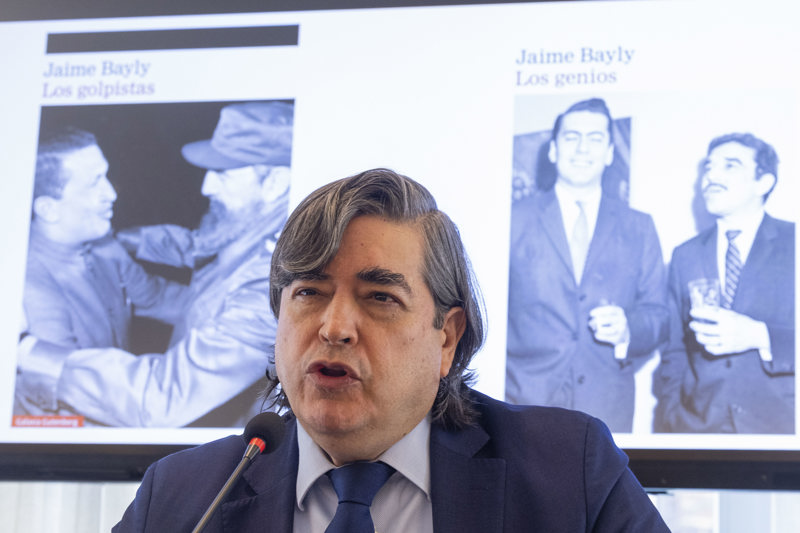
Peruvian author and journalist Jaime Bayly said Tuesday in Madrid that U.S. President Donald Trump “gets along better with dictators than he does with democrats” and that his administration is experiencing “a honeymoon with the Venezuelan dictatorship,” according to a report on his remarks during the launch of his new novel Los golpistas (Galaxia Gutenberg).
Bayly made the comments while presenting the book, which reconstructs the turbulent three days in April 2002 when Venezuelan leader Hugo Chávez briefly lost power. He also sharply criticized the current Venezuelan leadership, saying that Delcy Rodríguez should be recognized as a dictator and “a continuation of Maduro’s dictatorship.”
The writer lamented that the failed 2002 coup — which he described as carried out by “amateurs” — did not lead to free elections that might have restored democracy to Venezuela. He argued that, even now, U.S. policy under Trump seems more focused on securing access to Venezuelan oil than on supporting Venezuelans’ freedom. “Venezuela could have chosen a free, clean and legitimate government — which we still impatiently await despite Trump, who only seems interested in freeing Venezuelan oil, not Venezuelans,” Bayly said.
Bayly also claimed that “every day that passes, Trump seems more enchanted with Delcy,” suggesting that Washington might leave Venezuelan leaders in power so long as they cooperate on economic interests.
A U.S. citizen who has lived in Miami for decades, Bayly said he is proud never to have voted for Trump, whom he described as “servile with the powerful and cruel with the weak.” He also criticized U.S. immigration enforcement as abusive.
Regarding the book’s creative process, Bayly said he combined extensive documentation and interviews with historical events, weaving fictional dialogue and narrative into real episodes without altering core facts. Los golpistas explores why the April 2002 coup attempt against Chávez failed and how key figures such as Chávez and Cuban leader Fidel Castroshaped modern Venezuelan history.
International
Maduro and Cilia Flores Receive Consular Visit in U.S. Jail Ahead of March 26 Hearing
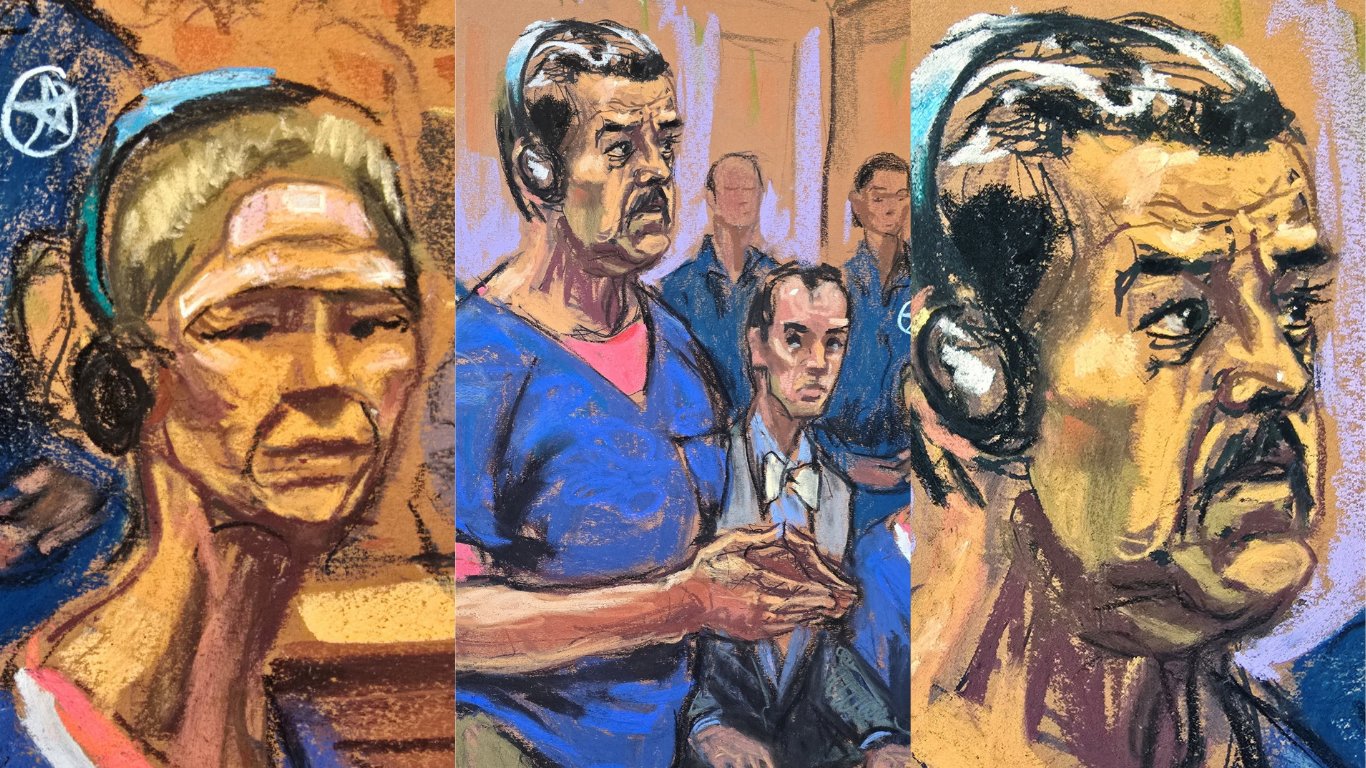
Venezuelan President Nicolás Maduro, who is detained in the United States, and his wife, Cilia Flores, received a consular visit from a Venezuelan government official on January 30 while they remain in a New York jail awaiting their next court appearance, scheduled for March 26, 2026, according to a court filing.
The notification, submitted to the judge by prosecutors and the defense and now part of the digital case file, states that Maduro and Flores were visited by “an official representing the Republic of Venezuela to help facilitate any services the accused needed.”
The document also notes that U.S. District Judge Alvin Hellerstein ordered the U.S. prosecutor’s office at the couple’s first court appearance on January 5 to ensure they had access to consular services and to inform the court when such access was provided.
Their next hearing was postponed by the court from an original date of March 17 to March 26 at 11:00 a.m., after prosecutors, with the consent of the defense, requested extra time to gather evidence, allow the defense to review it, and determine which pretrial motions they will file, the filing says.
Maduro has denied wrongdoing, calling himself “innocent” of the narcotics charges authorities have brought in federal court.
International
Rubio Engages in Quiet Discussions With Castro Family as U.S. Pressures Havana

El secretario de Estado de Estados Unidos, Marco Rubio, sostuvo conversaciones secretas con Raúl Guillermo Rodríguez Castro, nieto y actual cuidador del expresidente cubano Raúl Castro, según reveló este miércoles el medio estadounidense Axios. Los contactos se producen en un contexto de fuerte presión de Washington sobre el Gobierno de La Habana.
De acuerdo con la publicación, los diálogos han evitado los canales oficiales del Ejecutivo cubano y reflejan que la administración del Presidente de Estados Unidos, Donald Trump, considera al exmandatario de 94 años como la figura que aún influye en las decisiones clave de la isla. Un alto funcionario citado por Axios matizó el carácter de los encuentros al afirmar: «Yo no las llamaría ‘negociaciones’, sino ‘discusiones’ sobre el futuro».
Rubio, de ascendencia cubana, y su equipo ven en Rodríguez Castro, de 41 años, y su entorno a una generación más joven y con mentalidad empresarial, que percibe agotado el modelo comunista tradicional y valora un eventual acercamiento con Estados Unidos. “Nuestra postura —la postura del gobierno estadounidense— es que el régimen tiene que irse”, declaró el funcionario a Axios, al tiempo que agregó que “pero cómo se verá eso exactamente depende del presidente Trump y aún no lo ha decidido. Rubio sigue en conversaciones con su nieto”.
Según fuentes citadas por el medio, asesores de Trump han mantenido contactos con otros actores influyentes en Cuba, pero consideran al nieto de Castro una figura clave por su cercanía con el exmandatario y sus vínculos con el conglomerado militar-empresarial GAESA. Una fuente describió los intercambios como “sorprendentemente” amistosos.
Las revelaciones surgen mientras el Presidente de Estados Unidos confirmó recientemente que su Gobierno mantiene conversaciones con altos funcionarios cubanos, aunque La Habana lo ha negado. “Estamos hablando con Cuba ahora mismo. (El secretario de Estado de EE.UU.) Marco Rubio está hablando con Cuba ahora mismo, y deberían totalmente llegar a un acuerdo, porque es… realmente, una amenaza humanitaria”, declaró el mandatario a bordo del avión presidencial.
El endurecimiento del bloqueo energético estadounidense ha profundizado la crisis en la isla, con apagones prolongados, reducción de servicios en hospitales y oficinas públicas, y limitaciones en el abastecimiento de productos, lo que añade presión a un eventual diálogo entre Washington y La Habana.
-

 Central America4 days ago
Central America4 days agoGuatemala’s president denounces MP raids during Constitutional Court election
-
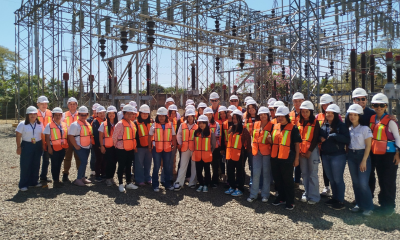
 Central America3 days ago
Central America3 days agoTeens visit ETESAL substation to learn about responsible energy use
-

 International1 day ago
International1 day agoFather Faces Murder Charges in Georgia School Shooting Case
-

 International1 day ago
International1 day agoSpanish Government Targets ‘Big Tech Impunity’ in AI Image Scandal
-
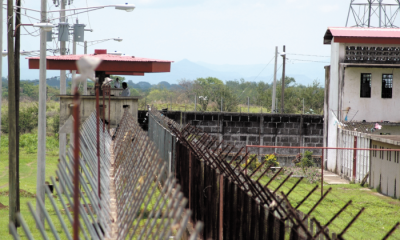
 Central America5 hours ago
Central America5 hours agoWashington Imposes Visa Ban on La Modelo Director Amid Crackdown in Nicaragua
-

 International5 hours ago
International5 hours agoMaduro and Cilia Flores Receive Consular Visit in U.S. Jail Ahead of March 26 Hearing
-

 International6 hours ago
International6 hours agoRubio Engages in Quiet Discussions With Castro Family as U.S. Pressures Havana
-
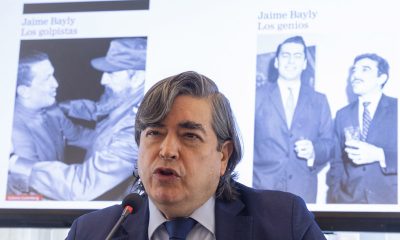
 International5 hours ago
International5 hours agoBayly Says Trump ‘Gets Along Better With Dictators’ and Criticizes U.S.–Venezuela Policy
-
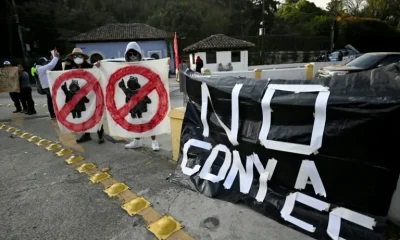
 Central America2 days ago
Central America2 days agoGuatemala’s Attorney General Consuelo Porras Loses Bid for Constitutional Court Seat


























